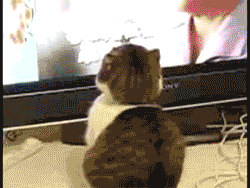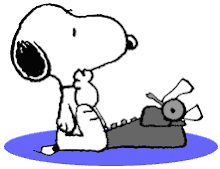I would say my closest friends basically fall into three groups: one consisting of friends from university; one of friends from high school; and one comprising a couple of long-term friends from first school. I do realise that for anybody outside any of these groups, once we've started chatted, the forum is pretty impenetrable to virtually all other people, that includes people trying to interact across these groups, although I have been working on making the latter two groups interact more!
Part of the reason for this impenetrability is the custom slang we use. However, The biggest reason is the choice of conversation topic. Apart from standard small-talk and a small amount of sensible discussion his usually includes, but is not limited to:
- Shared experiences - the foundation upon which friendships are made in my opinion. For example, memories of specific lessons at school.
- Proposed ideas for future shared experiences - which often comically involve high degrees of implausibility.
- Shared musical or sporting interests - which are often very technical and/or almanac-like in their nature.
- Things we all find funny. For example, comedy shows on TV, YouTube Poop, internet memes.
- Gossip or recollections about mutual friends and acquaintances, commonly involving over-exaggerated or completely fabricated extensions of their characters
- Ridiculous long standing in-jokes based on all or none of the above...
- J.J. STOKES!
(I know there exist only 2 or 3 people in the universe who could possibly find point 7. funny but hopefully I will have succeeded in making those people spit out their tea...)
The point is, the closest friends we have will be the people we meet and become friends with first of all because they share similar interests or experiences to ourselves. These people will then become the people with whom you will go on to experience life. Upon intricate memories of these experiences, long-standing cryptic jokes will be made, and these complex jokes in turn reward long-term friendship (just as running gags reward long-term viewers of a sitcom.)
Sometimes a group of 2 or more people will already be friends by the time you find out that you have a lot in common and start to become friends with them.
In this instance you have the option of either letting them carry on with the old in-jokes and inevitably end up forming new in-jokes with them as a way of cementing your blossoming friendship, or politely asking the origin of the old in-jokes and cement friendships that way.
Often, the latter process can be a frustrating affair and rely on one of those "you had to be there" moments we all find awkward. However, sometimes the process can be rewarding, and the act of retelling the story which led to the recurring gag can be rewarding in itself.
But then again, sometimes, especially in my circles of friends, the jokes are just too stupid...
TO BE CONTINUED...













